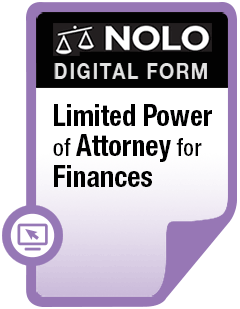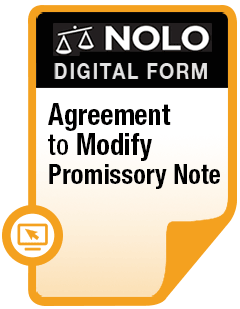A company can’t send you a credit card you didn’t request. Here’s what to do if you get a random, unsolicited credit card in the mail.
An "unsolicited" credit card is a credit card opened in a consumer's name without that person's permission. Under Regulation Z, which implements the Truth in Lending Act, it's illegal for a credit card company, store, or other entity to send you a credit card you didn't request. (12 C.F.R. § 226.12).
So, most companies don't send out straightforward, unsolicited cards. But some companies try to get around the law by sending "replacement" credit cards for accounts that are no longer active. Sending these types of cards, if unsolicited, still violates the law.
However, if your card is active or if you made an oral or written request for the card, a company may send a replacement card even if the new card has different features. And, occasionally, a bank might issue a credit card in error.
- What to Do When You Receive a Credit Card You Didn't Apply For
- 1. Close the Account
- 2. Send a Confirmation Letter
- 3. Figure Out If You're a Victim of Identity Theft
- 4. File a Complaint With the Consumer Financial Protection Bureau
- Unsolicited Credit Card Offers
- What to Do When You're Misled Into Signing Up for a Card
- When to Talk to a Lawyer
What to Do When You Receive a Credit Card You Didn't Apply For
If you receive a credit card you didn't request, you don't have to accept it. But don't use the card. Once you use an unsolicited credit card, you've accepted it and become responsible for the charges on it.
However, even if you don't want the card, you shouldn't just throw it away. Take the following steps instead (before cutting up and trashing the card).
1. Close the Account
First, close the account. If you don't, your credit file might show that you have an account with an open line of credit. Some creditors won't extend credit to people they believe already have too much credit. Having an unused account could be grounds for denying you future credit or limiting increases on existing accounts. (But see "What to Do When You're Misled Into Signing Up for a Card" below, which covers how your credit utilization ratio affects your credit. This section assumes you didn't accidently sign up for the card, which means the card shouldn't appear on your credit, even as a hard inquiry, and you should close the account to protect your credit.)
Before you cut up and toss the card, make a copy, and then call the issuer. But don't call the activation phone number on the sticker on the front of the card. You'll probably reach an automated system, and you might not be able to talk to a representative. Instead, contact the customer service number or the fraud department. Inform the representative who you speak to that:
- you believe the company sent you the unsolicited card in violation of the law
- you don't want the card
- the company must cancel the account, and
- it must provide you with written evidence that it did not—and will not—report the account to any credit reporting agency.
2. Send a Confirmation Letter
After you call, send a confirmation letter by certified mail, return receipt requested to the company. Keep a copy for your files, along with information about the credit card, like the account number and name on the account.
3. Figure Out If You're a Victim of Identity Theft
Unfortunately, it's possible that someone applied for the credit card in your name, which means you're a victim of identity theft. If that's the case or you have any other reason to suspect identity theft, you'll need to take steps to prevent further fraud on other accounts.
For one thing, you should immediately place a freeze on your credit files. Also, consider filing a report with your local police station if your identity was stolen.
Get Your Credit Reports and Review Them Carefully for Identity Theft
Get weekly copies of your credit reports and check to be sure the account is not on the reports. (It should fall off after a few weeks.) Also, look for accounts you didn't open. The credit reporting agencies provide free weekly reports online. Go to AnnualCreditReport.com to get your reports.
If you find other accounts on your reports that don't belong to you, you need to file a dispute with the credit reporting agency about any suspicious activity you find and contact those companies immediately. You can use the FTC's Sample Identity Theft Letter to a Credit Bureau and Section 605B(a) of the Fair Credit Reporting Act (FCRA) as an enclosure. (15 U.S.C. § 1681c-2). You must send each agency:
- proof of your identity
- a copy of an identity theft report (see below)
- the disputed information (such as a copy of your credit report identifying the fraudulent debts), and
- a statement the information doesn't relate to any transaction you made.
The agency usually must block reporting of the information within four business days and inform the creditor that provided the information. But a credit reporting agency is allowed to decline to block or rescind a block if you got goods, services, or money as a result of the blocked transaction. The creditor can't re-report the information to credit reporting agencies. (15 U.S.C. § 1681s-2).
How to Report Identity Theft
To report identity theft, go to the FTC website IdentityTheft.gov, get a recovery plan, and get an identity theft report.
4. File a Complaint With the Consumer Financial Protection Bureau
Also, consider sending a complaint to the Consumer Financial Protection Bureau or the Federal Trade Commission.
Unsolicited Credit Card Offers
Sometimes, when you get credit cards in the mail that you haven't applied for, those are credit card offers—not actual, usable cards. You have to submit an application and be approved for credit before you get access to a functioning card.
If you want to stop these unsolicited credit card offers, the FCRA gives you the right to opt out of them. (15 U.S.C. § 1681b(c)). To opt out, call 888-5-OPTOUT (888-567-8688) or go to www.optoutprescreen.com. You can opt out for five years or permanently.
What to Do When You're Misled Into Signing Up for a Card
Here's what to do if you get tricked into signing up for a credit card. For example, say you sign up to receive "free points" at a store, but the personal information you provided is used for a credit card application.
First, it's generally pretty hard to accidentally sign up for a credit card. You'd need to provide a lot of personal information as part of the process. You shouldn't have to give lots of your confidential information, like your Social Security number, date of birth, and income, just to get something like free points or perks.
Also, the card issuer must disclose important details about the card, such as the interest rate and any other charges or fees that come with the card. (12 C.F.R. § 1026.60). So, it would be unusual to accidentally apply for a card. Still, if you didn't understand you were signing up for a card and didn't mean to open up a new credit account, you have a few options.
You could close the account. You'll probably have a hard inquiry on your credit because of the application, which will slightly damage your credit scores. But this damage will only last for a short time.
Or you could keep the card and just not use it, which could actually help your credit. The new credit limit would increase your available credit, which could help lower your credit utilization ratio. Your "credit utilization ratio" is the percentage of your total credit lines that you're currently using. And when it comes to credit scores, a lower credit utilization ratio is better.
When to Talk to a Lawyer
If an identity thief has opened new accounts in your name and you need help dealing with the aftermath, consider talking to a consumer protection lawyer.
Talk to a Lawyer
Need a lawyer? Start here.
How it Works
- Briefly tell us about your case
- Provide your contact information
- Choose attorneys to contact you
- What to Do When You Receive a Credit Card You Didn’t Apply For
- 1. Close the Account
- 2. Send a Confirmation Letter
- 3. Figure Out If You’re a Victim of Identity Theft
- 4. File a Complaint With the Consumer Financial Protection Bureau
- Unsolicited Credit Card Offers
- What to Do When You’re Misled Into Signing Up for a Card
- When to Talk to a Lawyer
- Briefly tell us about your case
- Provide your contact information
- Choose attorneys to contact you



